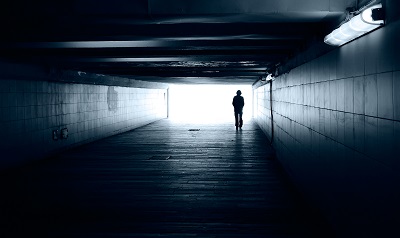45% of trafficking victims are boys and men.
Our memory works in funny ways, with a select few images flashing through our heads when we think back to a particular one. When I think back to my 10 days on the ground with Urban Light in Chiang Mai, it is one particular image from my first night that returns incessantly to mind.
The image that haunts me is that of a boy, barely 12, short and skinny, leaving a bar with a man, easily in his fifties, tall and overweight. The look on the man’s face spoke of entitlement, an air of dominance and anticipation. The way he led the 12 year-old across the street was more authoritarian than paternal. The look on the boy’s face was that of resignation, a numbed out expression of utter helplessness.
The boy was one of many led away by older men from bars across Chiang Mai that night, probably to a nearby motel or alleyway to provide sex for pay. I never learned that boy’s name, I don’t know where he is today, but I know that I will never forget the look on his face that night.
All this I saw from the back of a tok tok in an ostensibly residential neighborhood of Chiang Mai, Thailand’s second largest city. Together with Alezandra Russell, Urban Light’s founder, Brent Seely, the NGO’s Thailand director, and Montse Ferrer, a fellow pro-bono attorney, I was investigating places where boys are “sold.” From the back of that tok tok I would soon discover that, alongside Thailand’s highly public sale and exploitation of women, is a parallel but hidden network of bars, spas and cruising spots at which boys are “bought” and “sold” with impunity.
These boys, mostly teenagers, some as young as 10, have been trafficked from nearby Laos, Burma and Northern Thailand. The buyers are mainly white and Chinese “sex tourists” in their 40s to 70s. Local bar owners snarl these destitute boys with promises of good pay in return for “working” at their bars and then ply the boys with drugs so that survival sex becomes the only means for them to feed their addictions. The buyers, for their part, know that they can “buy” boys at will in Chiang Mai.
Despite the direness of the situation, trafficked boys remain one of the most under-served populations in Thailand. With many NGOs dedicated solely to the plight of girls trafficked into sex slavery and the boys themselves often reluctant to ask for help given the patriarchal nature of Thai society, the situation did not bode well for the boys of Chiang Mai.
Urban Light, the only NGO of its kind dedicated exclusively to helping boys, is changing the reality of these trafficked and exploited boys — offering them shelter, a daily hot meal they can rely on, medical testing, counseling, English and Thai classes, art relief and many other preventative and rehabilitative services.
Only a couple of blocks from Chiang Mai’s red light district, Urban Light runs a four-story drop-in center. It was within the walls of this drop-in center that I saw the promise of a better reality for Chiang Mai’s boys. I saw boys having a hot, healthy meal on the first floor, others participating in art relief classes on the center’s roof, still others waiting in line for medical and counselling appointments, and boys browsing the internet at the center’s computer room or simply taking a nap on the center’s comfy couches.
The boys treated the center as their home. They knew they were safe to take a nap without judgment, having probably gotten little sleep the night before. They knew they could count on the center’s doctor to see them when ill, and, when they were ready, they knew they could talk to a counselor to start their re-training to exit the sex trade altogether. The look in the eyes of every one of the boys at the center spoke of security – in the center they had found a refuge from the life they have been forced to lead outside its walls.
It is true that certain images become seared in our head, and, try as we might, we are unable to let them go. It is also true that we are capable of countering these images with other, hopeful ones. Urban Light’s center provided me with countless images of exploited boys taking charge of their lives again, helping me counter that one seared image. I can only hope that the boy I saw on that first night learns about Urban Light so that he too can have a shot at a different reality.
Ziad Reslan is an associate at Davis, Polk & Wardwell, currently assigned as a Legal Manager in Hong Kong. He shared his story with Sanctuary for Families after volunteering with Urban Light, and organization that helps boys who are survivors of sex trafficking in Thailand.
